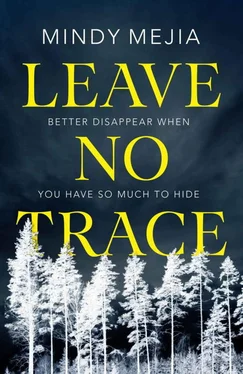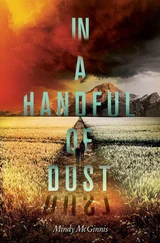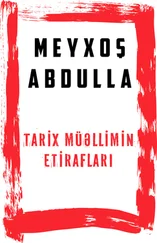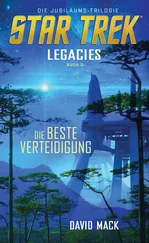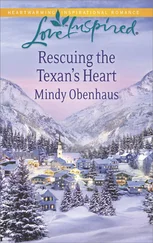All roofs came with a price. His foster mother showed them the gas and electricity bills every month. She did the same thing with grocery receipts and the register slips from Goodwill when they went clothes shopping. ‘If you get something for free,’ she told all her foster children, ‘that just means you don’t know what it’s going to cost yet.’ She wasn’t an unkind woman, just mean with a dollar. She rubbed calendula on their cuts instead of buying Band-Aids and made teas out of mullein leaves for their colds. As soon as the first spring rains came, she sent the boys into the woods behind their house, showing them how to find mushrooms, fiddlehead ferns, and dandelion greens. Josiah turned out to be a natural forager, instinctively memorizing the landscape, working his way farther into the shadows and hills where sometimes he would find a break in the trees and roll out an old sleeping bag so he could count the stars and hear his breath mingle with the scrapes and chirps of fellow night explorers. It was worlds better than sleeping under a stained ceiling with whichever foster boy was spoiling for a fight that week and as long as he came home with a basket full of morels, no one minded his absence.
The only thing he liked over his head, his foster dad joked as he grew up, was the hood of a car. Engines intrigued Josiah at the same level as the woods; they were a mechanical ecosystem and every part contributed to the function of the whole. He was the only kid in school who checked out books on cars and botany together. Eventually his foster parents helped him get a job doing tune-ups and let him tinker with their rusting Chevys until he saved up enough money to buy one of his own. When the foster subsidies ran out on the day he turned eighteen, they gave him a secondhand tent, wished him luck, and sent him on his way.
Josiah saw a lot of roofs over the next years and sometimes he wondered if he was the only person who noticed them. Every garage he worked at had a mechanic who’d been there for decades, with skin so stained they practically disappeared into the oil-splattered walls and telling stories that always ended with ‘Just you wait…’ Josiah didn’t wait. He worked as long as he could before the ceilings started to close in and the alcohol – which numbed much better than his foster mother’s aloe vera – led to fights, cops, jails, and the inevitable firings. Camping until he ran out of money, he moved to the next town, which started the cycle all over again. He fantasized about leaving it all behind, building a little cabin somewhere so remote he could never find a way back, when he met a kayaking hippie named Sarah Mason.
The girl caught Josiah’s eye the second she stepped out of her tent. She had dirty blond ringlets spilling out of a bandana and tattoos peeking out of her tank top. Her nose was burnt watermelon pink and she seemed to be alone, too, their tents pitched on adjoining campsites along Lake Macbride in the tumbling hills of eastern Iowa. He leaned back in his camp chair as she tugged her boat down to the water.
‘Can I help?’ he asked.
‘I doubt it.’ Flashing a smile, she set the boat in the lake without a backward glance. It was a two-person kayak and she used the second seat to prop up her bare feet as she paddled away.
It was the Fourth of July in a year no different from a half dozen before it. Josiah was between jobs again. He had a full cooler of beer, a week’s worth of food, and every intention of not speaking to another living soul for as long as he could avoid it, yet all that mattered to him in that moment was watching the girl lift her face to the sun. She stroked leisurely across the lake, a solar powered creature he’d never encountered in nature before.
Every morning after that he asked if he could join her, feeling more perverse each time she turned him down. She left the campsite in the morning and wouldn’t return until dusk. He offered her a beer and the only chair at his fire when she walked by at night, which she politely declined as she zipped herself into the glow of her tent. Josiah wasn’t used to rejection, at least not the sexual kind. Generally, when he walked into the first bar in a new town, mascara-smeared eyes lit up. He was a drifter, an outsider, and his otherness offered what they craved, what – by definition – they couldn’t have in their everyday lives. The less he said, the more they wanted him and he understood it. Women sought him the same way he sought the wild. This girl, though, had already found her wilderness.
Hiking through the park during the day, he tried to answer the perpetual question that framed his life: where to head next. He’d been contemplating Canada lately, a good place for a man to be alone, but suddenly solitude had lost its appeal. He found himself hiking further into the park, circling the lake, trying to catch a glimpse of his elusive neighbor. She wasn’t beautiful, she might not even be interesting, yet there was something always dancing behind her eyes and he wanted to see what it did when it was set free.
At the end of the week when kids ran screaming through the campground with sparklers and someone lit illegal fireworks off on the other side of the lake, she was nowhere to be found. Her tent was dark and she wasn’t milling around with the other campers near the grills and playground. He wandered down to the beach and lay on the sand, watching the nation’s birthday saluted with the traditional spectacle of exploding gunpowder.
‘A patriot, huh?’
Out of nowhere she appeared, easing down on her back next to him, and he was surprised by the force of the leap in his chest.
‘More of a stargazer. I’m waiting for the smoke to clear.’
‘Astronomy.’ She shrugged her shoulders deeper into the sand, making a nest. ‘Let’s see who can name more constellations.’
That was the night he learned her name, that she was a graduate student from Iowa City, and that despite years of staring up at them he could only pick out one constellation in the entire sky – because Orion and Orion’s belt didn’t count as two. The next day Sarah let him kayak with her and the week after that he packed up his tent and drove to Iowa City, looking for a job.
He stopped drinking. Not right away, not cold turkey, but he didn’t hate every room so much he needed to make them spin anymore and he didn’t want to waste another night trapped in a jail cell, either. He pursued Sarah and leveraged her every swooning friend in his campaign to get her to date him without any concept of how dating actually worked. He was awkwardly honest, willing to describe every sexual misdeed, every rancid night behind bars. She laughed at each story, infusing them with a lightness he couldn’t have imagined before meeting her, like sliding into a mineral spring and experiencing that first buoyant heat.
He learned her likes and dislikes and the meaning of every tattoo on her body, but the most important discovery he made about Sarah Mason, one night when he walked her home after class, was that she also hated roofs. Her sister had locked her in a toy box when she was three and she’d been claustrophobic ever since. Lecture halls were tolerable if they had windows, but she couldn’t bear small waiting rooms, and the only time she’d tried boarding an airplane, she began hyperventilating and then screaming as soon as the cabin doors closed. So instead of asking to come in to her apartment, he found a bench overlooking the river and they talked all night, and when the sun rose, she kissed him until he forgot whether they were inside or out.
They went camping together, voyaging farther and farther into parks across the country with one tent and two kayaks, because Sarah liked having space to stretch out. He taught her to forage, how to distinguish the edibles and the medicinals from the indigestible and the poisonous. When they moved in together, tiny miracles began happening every day. She asked where he was going when he left in the morning; it mattered where he was, and whether he was sick or angry or thirsty or cold. Her love was a gift that asked for nothing in return. At night he gathered her close and talked about their cabin in the woods, because he couldn’t see himself anywhere now without her. You’re my sky, my everything, he whispered in the dark and he was right – until the day his son was born.
Читать дальше
